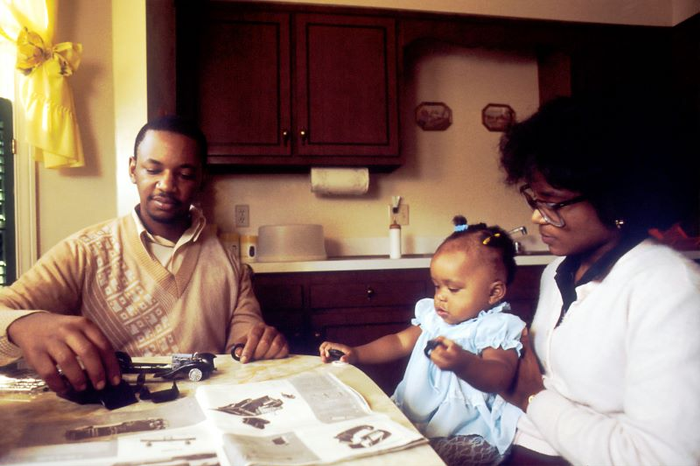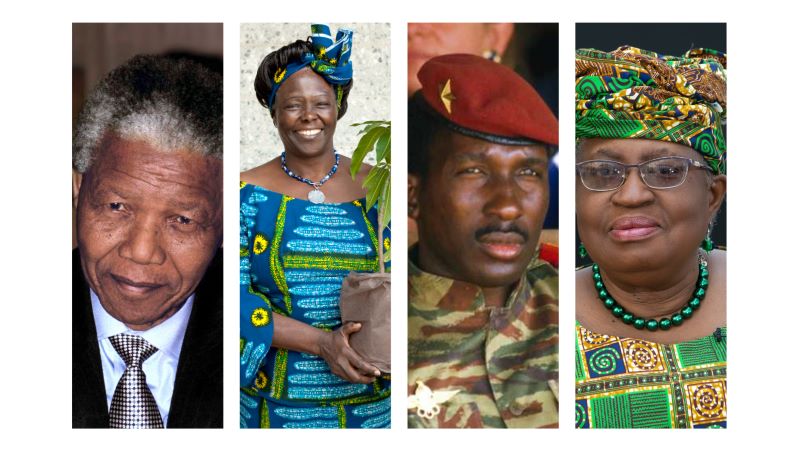Photo by Kindel Media
On May 15 of every year, the global community in adherence to the United Nations resolution (A/RES/47/237) of 1993 marks this day as The International Day of Families. The resolution recognizes the day as “an opportunity to promote awareness of issues relating to families and to increase the knowledge of the social, economic, and demographic processes affecting families”.
The International Day of Families brings to the fore the importance of Black family units as the bedrock on which Black communities, cultures, and society are built. Individual identities of Black Children are shaped and nurtured within the Black family unit and any disruption has the potential to cause an unsettling change not just to society but to the individual lives and make-up of these Black family units.
Sociologists have continued to raise concerns over the growing disruption of Black family units. A February 24, 2014 article by USAonRACE (an online magazine for race-related issues) observes that the general issues that burden societies such as economic challenges, unemployment, divorce, poor housing, lack of healthcare and access to education among others tend to have a more devastating effect on Black families.
An excerpt from the article reads “The Black family has been imperiled by one destructive force after the other. The impact can be seen throughout communities across the country. You need only to review a few grim statistics: the vicious cycle of Black-on-Black crime, higher rates of unemployment during economic prosperity, poor health, and limited or no access to the best health care available.
By comparison, Black family still, disproportionately, lives in poor housing and blighted neighborhoods. And the feelings of helplessness, complacency, apathy, and general lethargy, are much too high.
Perhaps, the greatest and long-lasting impact of these destructive forces is on the children. Many find it difficult to have vision, to see beyond their immediate living environment. Many are more vulnerable, more likely to succumb to drugs and a life of crime to escape their deprived and disheartening condition”. (USAonRace)
How then did Black families come to this point in history?
There have been arguments about the impact of slavery and the damaging effect it had on Black family units.
According to Dr Aliana Morgan, assistant professor of history at the USC Dornsife College of Letters, Arts, and Sciences) in an article by Margaret Crable, she quotes that “The entire structure of slavery supported the separation and the ongoing fragility of the Black family. After slavery ended, plantation-owners turned to “convict-leasing” to fill the gap in cheap labor. Black Codes, laws that severely restricted the rights of Black Americans, made it easy for the state to imprison them for petty offenses and then lease prisoners to plantation owners for a fee.
After slavery, you see Black men and women taken away from their families, oftentimes for really minor, nonviolent crimes. It could be something as simple as not having a work pass”. (USC Dornsife)
While this position may be, the abolition of slavery has only given way to a bigger challenge that threatens the Black family unit. The current socioeconomic realities especially concerning the wealth disparities between White families and Black families have continued to put a strain on Black family units.

Photo by National Cancer Institute on Unsplash
According to an article by Liz Mineo on June 3, 2021, in The Harvard Gazette, she points out that we “Consider that right now the net wealth of a typical Black family in America is around one-tenth that of a white family”.
She further highlights a 2018 analysis of U.S. incomes and wealth written by economists Moritz Kuhn, Moritz Schularick, and Ulrike I. Steins and published by the Federal Reserve Bank of Minneapolis stating that “The historical data also reveal that no progress has been made in reducing income and wealth inequalities between Black and white households over the past 70 years.” (Harvard Gazette)
Aside from the growing wealth disparity, Black families are also faced with other societal plagues. Janice Ellis in her commentary for the Missouri Independent on June 19, 2023, noted that “Higher rates of unemployment persists for Blacks during the period of economic prosperity. By comparison, the Black family, disproportionately, lives in poor housing and blighted neighborhoods. This is also the case for Black home ownership, which is much lower than that of whites”.
She also raises the point that “in addition to higher rates of unemployment, the alternative is to take part in a welfare system that encourages separation and dissolution of the basic family unit. Girls and women can have babies and continue to get financial support for those babies as long as the father is not around to help raise them.
Perhaps, the greatest and long-lasting impact of these destructive forces is on the children”. (Missouri Independent)
Notwithstanding the many disruptions Black family units face, many centuries of cultural, historical, and community interconnectedness have continued to drive efforts by Black communities to stem the tide in the destruction of the Black family unit.
Through emotional support systems, Black communities are taking up programs and projects that help provide jobs for the unemployed and offer support systems for single parents, including reforming efforts for Black inmates.
With a rich cultural history, Black family units are making conscious efforts to educate, preserve, and pass down cultural values and heritages that have sustained Black communities thereby deepening stronger family identity and bonds with the unit and community.
As we mark the International Day of Families, we must continue to think up community-based initiatives that would mitigate the growing rate of divorced households, curb the rising crime rate among young Black kids while exposing them to proper education, and advocate for increased employment opportunities and wealth distribution.

Okechukwu Nzeribe works with the Onitsha Chamber of Commerce, in Anambra State, Nigeria, and loves unveiling the richness of African cultures. okechukwu.oniccima@gmail.com





